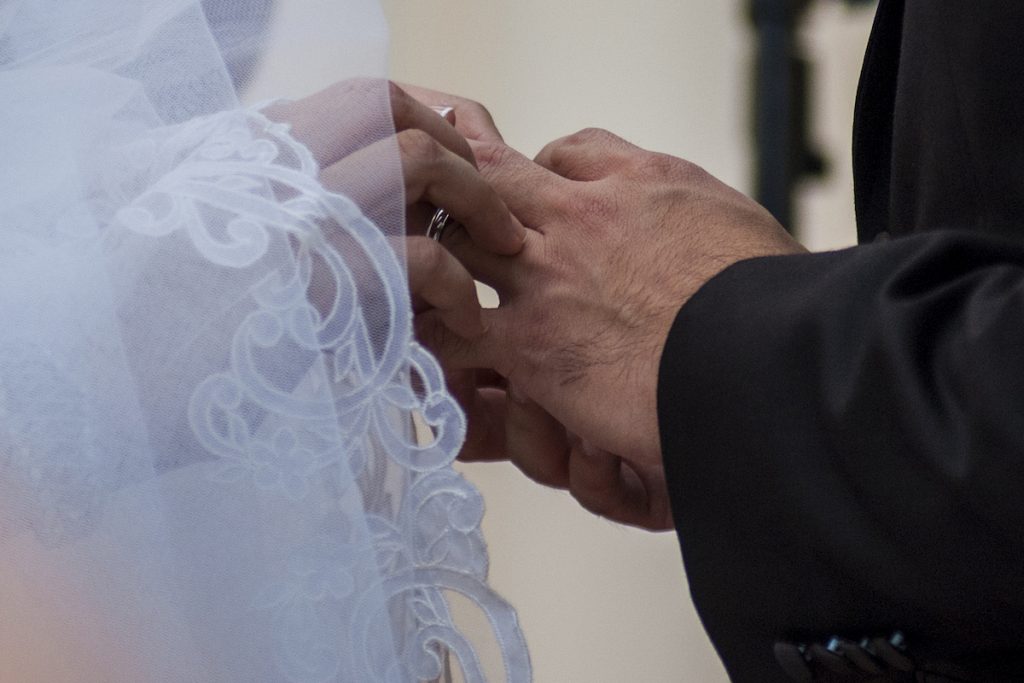
Today’s Gospel is one of my bases for believing that Jesus had many women followers because they felt that he was an advocate of their rights as human beings.
I think Jesus got into trouble precisely because he was quite ahead of his time in many ways. His attitude toward women was certainly not consistent with that of the religious authorities during his time.
Think, for example, of that scene where he refused to condemn the woman allegedly caught in the act of adultery. Or the way he dealt with the Samaritan woman by the well. Or his response when Martha insisted that her sister Mary was better off helping her in the kitchen than sitting at the Rabbi’s feet. Or his sensitivity to that woman who touched the hem of his garment. Or his compassion for that widow of Naim who was burying her only son. Or the way he relented after that Syro-Phoenician woman reacted to his reference to her as a dog. Or the way he reprimanded the disciples who were driving away the mothers who wanted to bring their children to Jesus, which is the second part of today’s Gospel.
I can give many more examples. But let us take a look now at the implied attitude of Jesus to women in his today’s Gospel.
First of all, did you notice something about the way the Pharisees posed the question to Jesus? “Is it lawful for a husband to divorce his wife?” What is wrong about the question? Yes, it was a one-way thing — meaning, from the perspective of the husband. They would never have even thought of asking, “Can a woman divorce her husband?”
Why not? Well, you guessed it right. They were operating in a male-dominated or androcentric and patriarchal society. In the Jewish laws, only a man could divorce his wife, never a wife her husband. In fact, in an earlier version of the ten commandments in Exodus Chapter 20, the wife is not even treated yet as a human being. She is simply listed as second among the properties of her husband, second only to his house, and followed by his male and female slaves, his livestock, and his other properties!
Jesus is reacting to this inhumane treatment of women. He was expected by the Pharisees to mention the same reasons cited by the book of Deuteronomy about all the possible reasons that a man could use as justification for divorcing his wife. Including such reasons like doubting her virginity at their first night together, or not being satisfied with her as a sexual partner, or even just a frivolous reason like not being pleased with her cooking.
He returned the question to them by asking about “what Moses had commanded.” But they answer him by pointing out “what Moses had permitted.” And then he goes beyond legalities by referring back to the story of creation in Genesis Chapter 2. First he quotes the part that says, “Therefore man shall leave his father and mother and cling to his wife and the two shall be as one.” And then he adds his own commentary, “What God has joined together, let no one separate.”
It is this one line that has become the basis for the Christian belief that a marital union “brought together by God” is supposed to be indissoluble. Meaning, it cannot be dissolved or put asunder — if it was indeed God who had served as their spiritual bond. It was this teaching that had paved the way for the idea of a “sacramental marriage.” Meaning, not just as a contract between two spouses but a covenant between God and the couple. That because the basis for their union is the eternal God, it cannot be dissolved.

We are dealing here with two contracts, the human and the divine. The human is the agreement between husband and wife. The divine is the covenant between the couple and God. Jesus is pointing out that if marriage is to be seen only a human contract, it can indeed be terminated like any human contract if the stipulations in the mutual agreement are violated. (And in their Jewish laws, unfortunately, the agreements were never really mutual but one sided.)
Jesus is inviting them instead to make an act of faith in marriage as a gift or a covenant that can be made stable not just by the couple’s love for each other but by their faith in the God who is Love, and who unites them precisely to grow together in divine love.
Therefore he says “what God has joined together, no human can separate.” The implication is, what God has not joined together, no human being must keep together! Terminating a relationships that does not really have God as the bond is what the Church now calls “annulment.” Namely, that despite all the ritual that may have been performed, no real marriage took place, that it was not a genuine marriage from the start.
The principle of marriage that cannot be dissolved applies only to Church law, not civil law. It applies only to marriages that we consider truly sacramental. But are there weddings officiated in the Church that might not have been sacramental? Yes, of course. The word “sacramental” is a statement of faith in the Church that a true marriage is one that had been joined together by God.
If it is joined together by civil law, it is bound only by the civil law as defined by the country that legislated it. And the Church coexists with civil society in many countries around the world, even in those countries where civil law has already legislated divorce. Therefore the process of dissolving a Church marriage is distinguished from the process of dissolving a civil marriage. It is the reason why in many countries the civil wedding is performed separately from the Church wedding.
Jesus points out, “Moses did not command it.” Rather, “he permitted it.” Those are two different things. And then he proceeds to explain, “It was because of your stubbornness of heart,” meaning, hearts motivated, not by love, but by SOMETHING ELSE. Yes, people can get married for many other reasons, other than LOVE. And we proclaim that only marriages motivated by genuine love can be truly sacramental — meaning “brought together by God.”
Understandably some marriages succeed, while others fail. The point is, no marriage is perfect. It is always a union of flawed human beings. But it can be strengthened or perfected by an act of faith in a perfect God, in the God who loves unconditionally. We can make an act of faith in the God who teaches us to make room for forgiveness, to put up with each other’s imperfections. The inability of some couples to grow together in that divine love may, in time be a basis for saying it was not God who had joined them together in the first place.
I must confess to you that, as a celibate, I always feel that I am in no position to judge which marriages can last and which ones cannot, or even to set standards about marital relationships, commitment, parenting and family life. I am fully aware that even our priestly commitment to a celibate life can be compromised sometimes by human weakness. And yet, like married people who are believers, we just make an act of faith to affirm the sacredness of making a commitment whether in ordination or in marriage. That it is only a commitment founded on the love of God that is bound to last, that nothing except the love of God gives us the courage to say “OO, MAYROONG FOREVER.”
Homily of Bishop Pablo Virgilio David of Kalookan for the 27th Sunday in Ordinary Time, Oct 3, 2021, Mark 10:2-16
Source: Licas Philippines
0 Comments